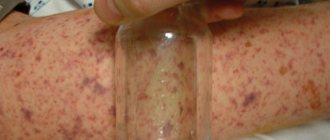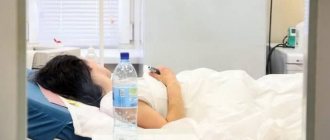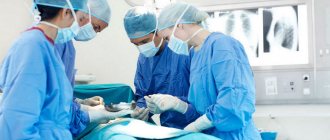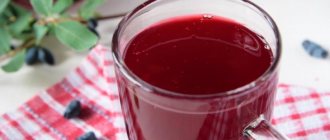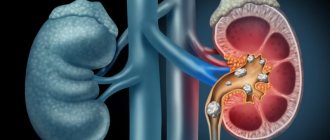A person encounters food poisoning and toxic infections many times throughout his life. No one is immune from these diseases, because it is definitely impossible to determine the quality of food or the presence of a large number of pathogenic microorganisms in them. How to recover from poisoning is a natural question that arises when the symptoms of an acute illness disappear. Depending on the type of disease, the duration of the recovery period varies, but in a trivial case, following the doctor’s instructions, following a diet and drinking regimen is enough for a complete recovery.
How to deal with dehydration and diarrhea
In case of poisoning, dehydration usually goes hand in hand with diarrhea and vomiting. While vomiting stops after intoxication is removed, problems with stool may continue to haunt the patient.
Restoring water-salt balance after poisoning and preventing further fluid loss is the most important point in the recovery plan. First of all, for this you need to drink purified or mineral water without gas during the day. You need to drink little by little, but often, so that you end up with at least two liters of liquid.
In medical institutions, dehydration is stopped intravenously with the simultaneous administration of sorbent drugs; at home, oral rehydration solutions (ORS) can be taken. They typically contain salt, glucose, potassium chloride and citric acid, which helps quickly restore the balance of water and electrolytes.
Taking antidiarrheal drugs without a doctor's prescription is highly discouraged, because In this way, the body gets rid of the remains of toxic substances and bacteria. A special therapeutic diet, during which you can also take enzymes, will help your intestines return to normal.
During the treatment of dehydration, it is necessary to monitor the general condition of the body: if you feel weak and the urine becomes dark in color (or is absent altogether), you should seek medical help. Also, do not put off visiting a doctor if you have persistent diarrhea.
Medicines
All drugs for restoring intestinal microflora after poisoning can be divided into two groups.
- Probiotics are medications containing one or more live cultures of bacteria. Once in the intestines, they populate the mucous membrane and replenish the ranks of beneficial microbes. Under favorable conditions, bacteria take root and begin to multiply intensively.
- Prebiotics are products that do not contain live bacteria, but include chemicals that are “food” for beneficial microbes or create conditions for their growth, as well as suppress pathogenic microflora.
Probiotics
Medicines from the probiotic group may contain one or more cultures. Such products are available in the form of tablets, capsules and rectal suppositories.
Here is a list of some drugs that can be used to restore the intestines after poisoning.
- “Lactobacterin”, “Acilact”, “Biobakton” - they contain a monoculture of lactobacilli.
- “Bifidumbacterin”, “Probifor” - they contain a monoculture of bifidobacteria.
Single medications are incompatible with taking antibiotics, will not help with complex dysbacteriosis, and they have age restrictions.
Nutrition after poisoning
When it comes to comprehensive recovery of the body, especially in the period after food poisoning, attention is first paid to nutrition. During the course of the disease in acute form, the patient often refuses to eat due to vomiting and pain in peristalsis. Of course, eating in this case is undesirable and it is better to observe a fasted drinking regime until the body is cleansed of toxins.
A strict diet for poisoning is observed for 2-3 days during intensive treatment. But cessation of therapy and discharge from the inpatient department does not mean that you can immediately return to your usual rhythm of life. After the symptoms of acute poisoning have partially disappeared, you can switch to a gentle diet, the task of which is to provide the body with energy and the necessary nutrients for a quick recovery.
List of foods and dishes that are best forgotten for at least a month after poisoning:
- smoked meats;
- canned food;
- lard, butter and other animal fats;
- vegetable oil;
- eggs;
- pickles and marinades;
- herbs, spices, flavorings, limit salt consumption;
- bakery products made from all types of flour with the exception of white crackers;
- pasta;
- sweets;
- honey;
- coarse cereals, legumes;
- dairy and fermented milk products;
- raw fruits and vegetables.
The food is quite meager and lacks variety. But such restrictions are necessary for the stomach: it primarily suffers from intoxication. Therefore, it is necessary to reduce the mechanical load on the intestinal tract and not aggravate the damage thermally and chemically.
We should not forget that not only the stomach, but also all internal organs suffer from intoxication. The list of forbidden foods is perplexing: how to recover from poisoning and where to get strength if you can’t eat practically anything. A special therapeutic nutrition method can answer controversial questions and help create a menu for a convalescent person.
Principles of treatment
Treatment after poisoning is aimed at eliminating the negative effects of toxins, their final removal from the body and stimulating the processes of regeneration of damaged tissues. Thus, the main goals of therapy are:
- final removal of toxins from the body;
- relief of pain symptoms;
- creation of a protective layer for the endothelium;
- restoration of gastrointestinal functions;
- stimulation of mucosal regeneration;
- normalization of microflora balance.
Similar goals can be achieved through the use of a complex of therapeutic measures. The main focus of therapy is taking medications, but it is advisable to reduce the amount of medications used to a minimum so as not to overload the body with chemicals.
Important: additional measures include physiotherapeutic procedures, diet, as well as various folk remedies that do not contradict common sense.
Drug therapy
It is not recommended to use medications without a doctor's prescription, with the exception of sorbents. Incorrectly selected medications can aggravate the problem and provoke even greater intoxication. In addition, some substances affect the properties of the blood, which, if blood vessels are damaged, can lead to internal bleeding.
To restore the stomach after poisoning, the following groups of drugs can be prescribed:
- Sorbents: Activated carbon, Polysorb, Smecta. Binds and removes toxic substances from the body.
- Analgesics and antispasmodics: No-shpa, Papaverine, Spazmalgon. Relieve pain symptoms. The use of Analgin is not recommended.
- Enveloping agents: Phosphalugel, Almagel, Maalox. They create a protective layer for the walls of the stomach and stimulate its regeneration.
- Probiotics: Linex, Hilak Forte, Bifidumbacterin. Helps restore the balance of microflora and fight the effects of dysbacteriosis.
- Enzymatic preparations: Pancreatin, Festal, Mezim Forte. They relieve the burden on the pancreas, support the secretory function of the gastrointestinal tract and promote normal digestion of food.
- Prokinetics: Motilium, Passazhiks, Trimedat. Stimulate peristalsis, restore the motor function of the digestive organs.
Physiotherapy
In case of serious poisoning, it is additionally recommended to undergo a course of physiotherapeutic treatment. It stimulates regenerative processes, relieves pain, improves tissue trophism, and also helps restore the functions of the gastrointestinal tract.
The following procedures are most often prescribed:
- electrophoresis with drugs;
- magnetic therapy;
- laser therapy;
- galvanotherapy;
- balneological procedures;
- massage.
Folk remedies
In order to normalize the functions of the stomach and restore its mucous membrane, a variety of folk recipes are actively used. The most effective means are:
- decoction of flax seeds;
- oatmeal jelly;
- White clay;
- rice starch;
- parsley;
- Melissa;
- caraway;
- Dill seeds;
- barberry;
- cloves with milk;
- knotweed;
- thyme;
- birch mushroom.
Diet therapy
During the period of treatment, you should reconsider your diet and turn to diet therapy. Food should be as healthy as possible and easy to digest. In order not to create additional stress on the gastrointestinal tract and not to provoke repeated stomach cramps, you need to adhere to the following recommendations:
- preference is given to liquid dishes, jelly, puree;
- the menu is based on liquid porridges, steamed cutlets, boiled and stewed vegetables, pureed soups;
- All solid foods are temporarily excluded;
- fatty, spicy, sour, fried foods are excluded from the menu;
- smoked meats, sweets, and pickles are prohibited;
- special attention is paid to the drinking regime;
- meals should be small and frequent;
- food and drink are served warm.
If you follow the doctor's instructions and nutritional rules after intoxication of the body, it is possible to restore normal stomach function in a short period and get rid of pain. In the future, you need to adhere to a healthy diet and take care to prevent new poisonings, especially in the first month after treatment.
Poisoning, especially food poisoning, always leads to intoxication - disruption of the functions of internal organs and systems due to the penetration of toxins into cells. Weakness, nausea, lack of appetite are a common picture after poisoning. These symptoms indicate that some organs, for example, the liver, intestines, and stomach, after removing toxic substances, are not yet ready to work at full capacity.
Therapeutic diet for recovery
This technique was developed back in the Soviet years by nutritionist Dr. Pevzner. It includes more than 15 diets for various diseases. After poisoning, you should pay attention to “Table No. 4”, which is ideal for restoring a damaged stomach.
In addition to the above prohibitions, there are basic foods:
- eat small meals 4-5 times a day;
- food must be soft (puree or grated) and warm;
- Only thermally processed dishes (boiled, stewed or steamed) are acceptable;
- energy value of the diet – not higher than 2000 kcal/day;
- drink at least 2 liters of liquid per day.
It is necessary to completely exclude dairy and fermented milk products from the diet, because The body reacts extremely painfully to lactose after intoxication. To restore the intestines after poisoning and normalize the microflora, it is better to take special medications (probiotics and prebiotics). Kefir, curdled milk and yogurt can be included in the menu no earlier than a month later.
Raw vegetables and fruits are too hard food for a damaged stomach, so you should avoid fiber altogether. In addition, fresh plant foods can increase peristalsis, which is extremely undesirable. And some vegetables (legumes, corn, cabbage) cause bloating.
The table shows the products and dishes that may comprise the recovery menu:
| Soups | Lenten and vegetarian soups with low-fat broth. Preference should be given to soft, creamy vegetable soups. Let's also say soup with chicken meatballs |
| Meat and fish | Lean meat and fish, boiled or steamed and in the form of cutlets, meatballs and other soft dishes. Suitable fillets of veal, chicken, turkey and sea fish |
| Vegetables | Mashed potatoes in water without oil, boiled grated carrots |
| Fruits | In the form of puree, compote, jelly or jelly. If you don't have diarrhea, you can have applesauce and bananas. Apples can also be baked in the oven without sugar. |
| Flour products | Only white wheat bread (crackers) and unsweetened cookies made from unsweetened dough (for example, “Zoological”) |
| Cereals | Porridge with water without adding milk or butter (oats, rice, buckwheat) |
The break between meals should be approximately three hours. At this time, you can refresh yourself with crackers and compote or decoction. Porridges and decoctions made from oatmeal and rice have enveloping and soothing properties, and rice, moreover, adsorbs remaining toxins. Along with food, you can take enzymes that will facilitate digestion and help improve the functioning of the stomach.
To restore an infant after poisoning, it is very important not to stop feeding. At the same time, a nursing mother should follow the same diet and not eat heavy and harmful foods.
What to drink after poisoning
Taking in sufficient amounts of fluid is the most important condition for restoring normal water-salt balance. The patient needs to drink at least two liters of purified or mineral water without gas per day. It should be remembered that even boiling does not kill germs, and you should not drink raw, unfiltered water.
During the recovery period, there is a strict ban on alcoholic, energy and dairy drinks. Drinks that irritate a weakened intestinal tract are also unacceptable: coffee, cocoa, fruit and vegetable juices, strong tea, sweet and carbonated water. Suitable after poisoning:
- weak tea (can be sweetened a little to maintain vitality);
- dried fruit compote or jelly without sugar;
- rice or oatmeal decoctions, which have soothing and enveloping properties;
- herbal decoctions and infusions.
You can easily replace tea with drinks based on medicinal plants. Among the variety of herbs, chamomile stands out for its sorbing and anti-inflammatory properties, which will help completely remove toxins and even relieve a hangover. St. John's wort, rose hips, blueberries and black currants will help normalize stool and saturate the body with essential vitamins. Children can be given unsweetened compote or astringent jelly.
Like food, drink should be warm and taken in small portions throughout the day. Immediately before meals, it is advisable to drink a glass of clean water.
How to choose the right products
Food is the main source of vitality for the human body, so you should by default pay due attention to its quality. If you have certain diseases or during recovery from poisoning, the choice of ingredients must be approached with particular scrupulousness.
Food for the patient does not tolerate excesses; it is necessary to purchase fruits and vegetables in season, characteristic of the area of residence. It is better to refrain from going to the market and buying products from the shelves of unverified sellers and visit a store where you can always check the expiration date.
Considering the prevalence of diseases such as poisoning and intestinal infections, it is better for the patient to provide separate cutlery. Compliance with your doctor's instructions, diet, and washing your hands before eating is generally sufficient to speed up recovery.
Signs of dysbiosis
When the acute phase of poisoning passes, some symptoms remain indicating indigestion. A change in the normal intestinal microflora in quantity or quality is called dysbiosis. It is characterized by the following features:
- loose stools;
- constipation;
- bloating;
- unpleasant smell of feces;
- poor digestion of food;
- mild pain in the abdomen.
Dysbacteriosis can develop after the use of antibiotics and other antibacterial agents.
